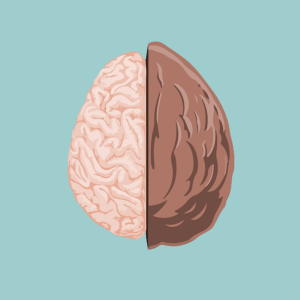
5.1M
Downloads
245
Episodes
I’m Emma McAdam, a Licensed Marriage and Family Therapist and my mission is to make mental health resources more easy to access. I take therapy skills and psychological research and condense them down into bite-sized nuggets of help. I’m here to spread the message that while mental illness is real, it’s common, it’s debilitating, it’s also treatable. There are dozens of research-backed approaches to treating depression, anxiety, and other mental illness. Change, growth, and healing are possible. Please keep courage! Try one little thing every day to improve your life and health and things can get so much better! Therapy in a Nutshell, and the information provided by Emma McAdam, is solely intended for informational and entertainment purposes and is not a substitute for advice, diagnosis, or treatment regarding medical or mental health conditions. Although Emma McAdam is a licensed marriage and family therapist, the views expressed on this site or any related content should not be taken for medical or psychiatric advice. Always consult your physician before making any decisions related to your physical or mental health. Therapy in a Nutshell and it’s logo are Registered Trademarks of Therapy in a Nutshell, LLC
Episodes

Thursday Oct 27, 2022
6 Thinking Patterns that Make OCD and Anxiety Worse
Thursday Oct 27, 2022
Thursday Oct 27, 2022
Check out the course, Taking Charge of Intrusive Thoughts, here: https://courses.therapyinanutshell.com/managing-intrusive-thoughts
OCD is caused by a combination of factors- genetic and biological(what’s going on with our bodies, including inflammation, nutrition, stress, etc), environmental (our experiences), and psychological- how we think. The way you think and act determines whether you feed or starve your OCD. In this video we’ll look at 6 types of thinking that feed OCD, they make it worse. And the reason we look at these is because when you can notice these thoughts, clarify that they aren’t helpful, and then replace them with something else, you actively decrease OCD symptoms. OK, so let’s explore 6 thinking patterns that make OCD worse and then we'll talk about what to do about it. 1. Inflated Responsibility 2. thought Fusion- Believing that Thinking it and doing it are the same thing 3. Excessive concern with controlling one’s thoughts “I shouldn’t ever think this…” 4. Overestimation of threat 5. Intolerance of uncertainty 6. Perfectionism- "I can't make a mistake"
Looking for affordable online counseling? My sponsor, BetterHelp, connects you to a licensed professional from the comfort of your own home. Try it now for 10% off your first month: https://betterhelp.com/therapyinanutshell
Learn more in one of my in-depth mental health courses: https://courses.therapyinanutshell.com/
Support my mission on Patreon: https://www.patreon.com/therapyinanutshell
Sign up for my newsletter: https://www.therapyinanutshell.com
Check out my favorite self-help books: https://kit.co/TherapyinaNutshell/best-self-help-books
Therapy in a Nutshell and the information provided by Emma McAdam are solely intended for informational and entertainment purposes and are not a substitute for advice, diagnosis, or treatment regarding medical or mental health conditions. Although Emma McAdam is a licensed marriage and family therapist, the views expressed on this site or any related content should not be taken for medical or psychiatric advice. Always consult your physician before making any decisions related to your physical or mental health. In therapy I use a combination of Acceptance and Commitment Therapy, Systems Theory, positive psychology, and a bio-psycho-social approach to treating mental illness and other challenges we all face in life. The ideas from my videos are frequently adapted from multiple sources. Many of them come from Acceptance and Commitment Therapy, especially the work of Steven Hayes, Jason Luoma, and Russ Harris. The sections on stress and the mind-body connection derive from the work of Stephen Porges (the Polyvagal theory), Peter Levine (Somatic Experiencing) Francine Shapiro (EMDR), and Bessel Van Der Kolk. I also rely heavily on the work of the Arbinger institute for my overall understanding of our ability to choose our life's direction.
And deeper than all of that, the Gospel of Jesus Christ orients my personal worldview and sense of security, peace, hope, and love https://www.churchofjesuschrist.org/comeuntochrist/believe
If you are in crisis, please contact the National Suicide Prevention Hotline at https://suicidepreventionlifeline.org or 1-800-273-TALK (8255) or your local emergency services.
Copyright Therapy in a Nutshell, LLC

No comments yet. Be the first to say something!